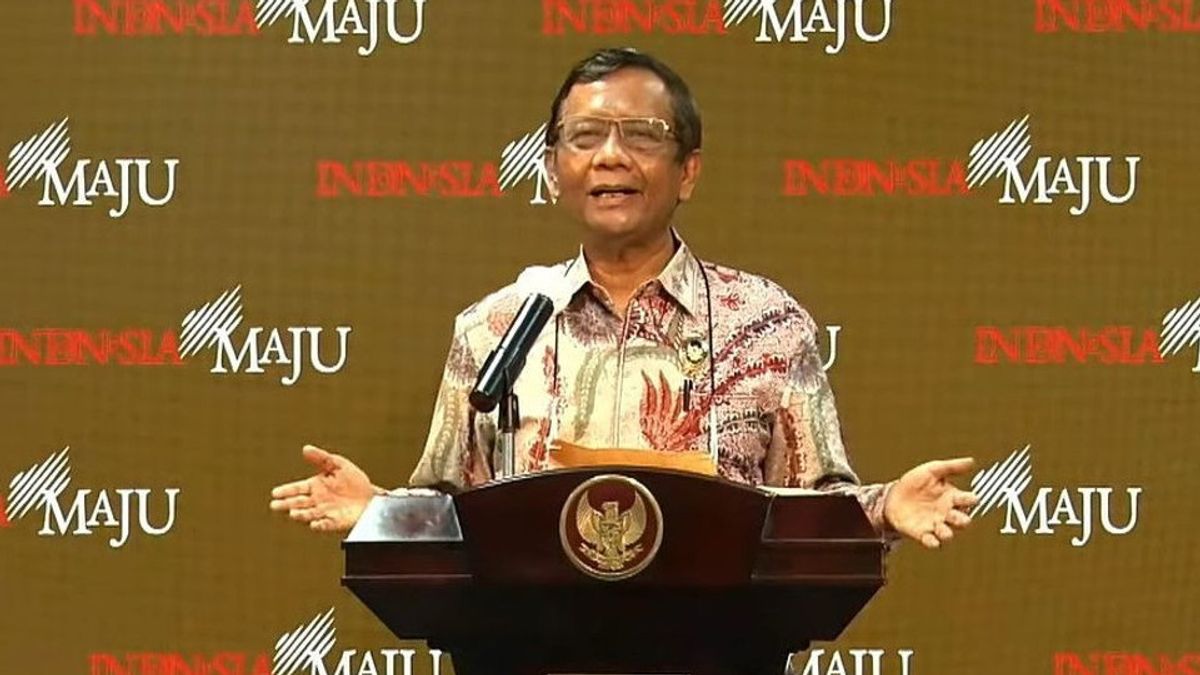JAKARTA - The Coordinating Minister for Political, Legal and Security Affairs (Menko Polhukam) Mahfud MD confirmed that the information about a prosecutor who accepted bribes in the Rizieq Shihab case was hoax.
This was conveyed, in response to a viral video that stated that a prosecutor at Rizieq's trial was arrested for accepting bribes. The one-minute video was viral on social media.
"The admission of a prosecutor who admitted to accepting bribes in the case of Habib Rizieq's trial was revealed. Inaillahi is increasingly shattered by the face of Indonesian law," said the man narrating the image on the video in the early minutes.
In the video, there is also an interview with a man saying that a prosecutor with the initials AF was arrested at his boarding house for taking bribes. During the arrest, evidence was found in the form of cash in the denominations of IDR 50,000 and IDR 100,000, totaling IDR 1.5 billion.
Mahfud said the video was a hoax. He also said that the arrest of the prosecutor with the initials AF took place six years ago in Sumenep, Madura, East Java.
"This video is viral, the public is angry that prosecutors have accepted bribes in kss which have been enlivened lately. But it turns out that this is a hoax: Attorney Yulianto's arrest of AF prosecutor took place 6 years ago in Sumenep. Not in Jkt and not in the current case, ”said Mahfud as quoted from his Twitter account @mohmahfudmd, Sunday, March 21.
He then linked this video with the Information and Electronic Transactions Law (UU ITE) which is now being debated. Mahfud said it was this hoax in the form of a video that caused the regulation to be made.
Meanwhile, regarding this hoax video, Mahfud asked the perpetrators who spread it and made it viral to be investigated.
"Deliberately turning a video like this is certainly not an offense in a complaint, it still has to be investigated," he said.
Furthermore, with regard to the ITE Law, the government will also continue to review and open up the possibility to revise the ITE Law to eliminate the rubber articles contained in it. This was done so that the public could distinguish between complaint offenses and general offenses.
"But we will still examine the possibility of revising the ITE Law to eliminate the potential for the rubber article and distinguish the complaint offense and general offense in it," he concluded.
The English, Chinese, Japanese, Arabic, and French versions are automatically generated by the AI. So there may still be inaccuracies in translating, please always see Indonesian as our main language. (system supported by DigitalSiber.id)








